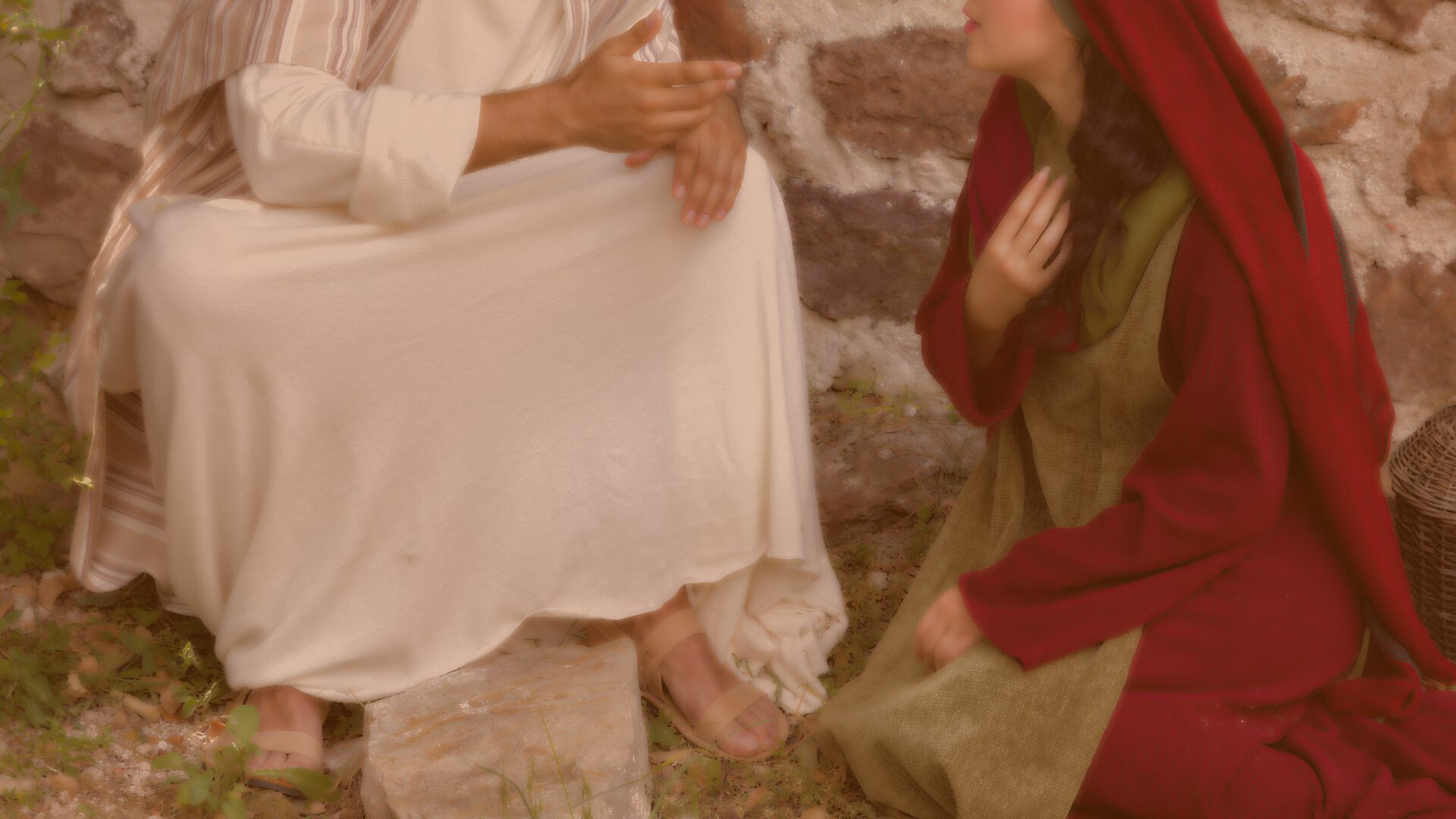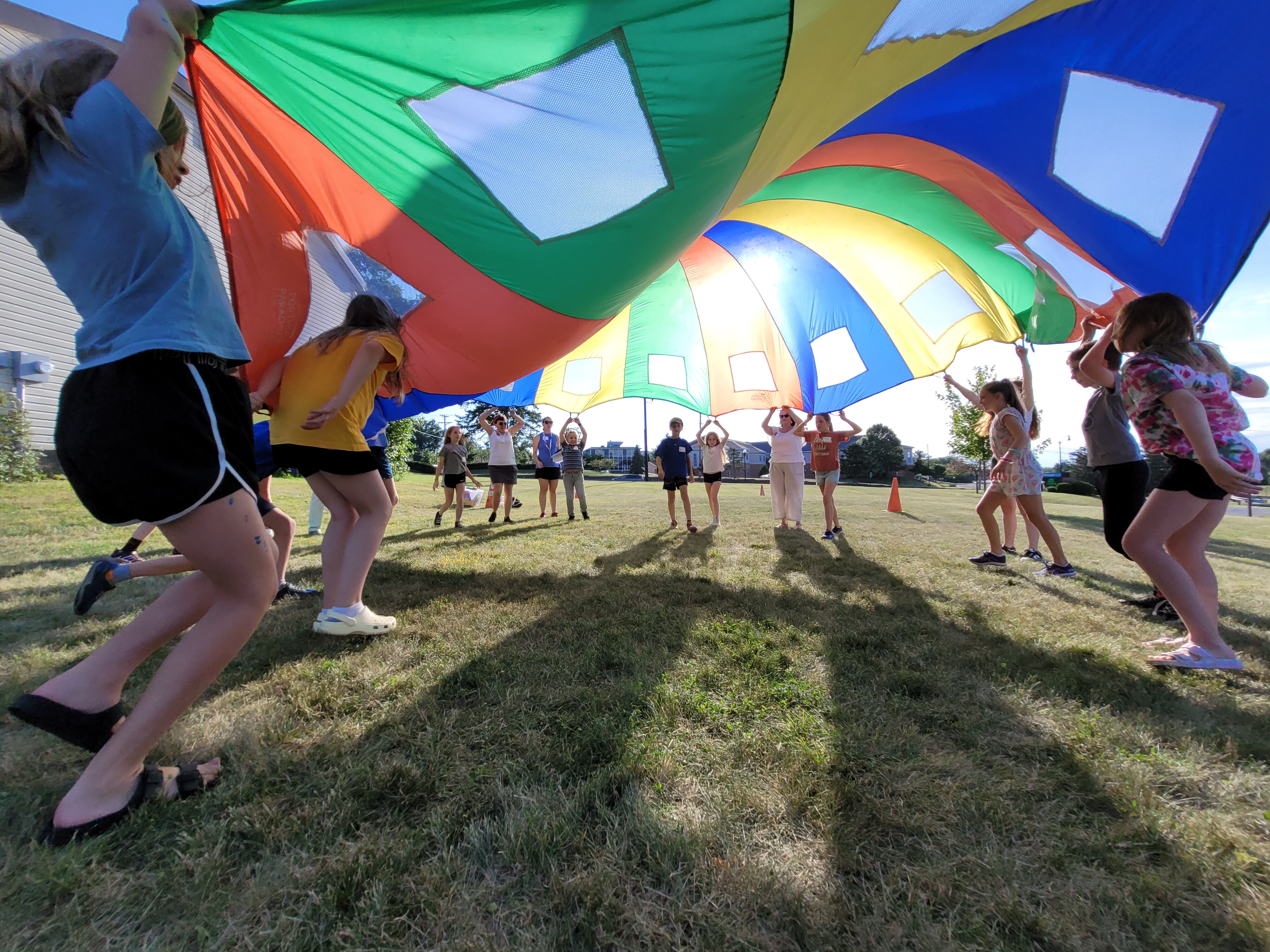Many Languages, One Spirit

Acts 2
In 2019, I was part of a study seminar In Wittenberg, Germany sponsored by the Lutheran World Federation. We studied Luther’s writings, saw historical sites, and learned about the modern church in Germany. But the best part of the two-week trip was the international colleagues who were a part of the study with me. They came from 19 different countries around the world, and let me tell you, these were amazing people. I met the first woman ordained in the Lutheran Church in Thailand. I met a theology prof whose dad was the first Lutheran baptized in Singapore. I met a pastor from Indonesia who taught himself to speak English and play the guitar on Youtube, and you’d never know, except that he played the guitar upside down strumming with his left hand because he was mirroring what he saw. These people were incredible.
The program was in English, but sometimes when we were in daily worship we sang simple songs in each other’s languages and prayed in our own tongue. I remember the sound of the Lord’s Prayer we all prayed simultaneously – a beautiful cacophony of all those mother tongues praying the Our Father, all at once.
Last week I preached about Jesus’ commission to his disciples just before he ascended into heaven. He said, “You will be my witnesses in Jerusalem, in all Judea and Samaria, And to the ends of the earth.” The disciples were to share the hope they had seen in Jesus’ life, death, and resurrection to all the world. But they weren’t going to do this on their own. Jesus said, “You will receive power when the Holy Spirit has come upon you.”
That’s what we get today in the story from Acts 2 – the arrival of the Holy Spirit. The disciples were gathered in Jerusalem along with Jews from every country in the known world. They were gathered for the Jewish harvest festival known as Shavuot when suddenly the Holy Spirit rushed into the house and their bodies like a gale force wind, like wildfire spreading from one person to the next – the power from on high had arrived! And no sooner had the disciples been filled with the Holy Spirit’s power they were compelled into the streets, proclaiming God’s mighty acts in languages they had never spoken before.
Can you imagine the sound? I imagine it was a bit more chaotic than me and my international colleagues praying the Lord’s Prayer, but I think it would have been awesome.
Some of the people on the day of Pentecost were amazed but others scoffed, attributing the disciples’ sudden linguistic ability to drunkenness. It seems that some people did not want to hear other languages, did not want difference.
It turns out that this is a timeless reaction. Consider the Old Testament story of the Tower of Babel. The people of Babel wanted to be like gods, so they built a tower up in the clouds. God saw their hubris and confused their language. Sure enough, their inability to communicate was enough difference to tear them apart from their common purpose. Language has the power to unite, and it has the power to divide people in their own camps with their own narrow vision – who is included and who is out.
But here in Acts we see the fuller scope of God’s vision. The disciples weren’t just called to Jews like them. They weren’t just called to people living in their land or to folks who thought like they did. They were called to all people, “to all the earth,” as Jesus said. Peter reiterated what the prophet Joel had foretold – that Spirit would be poured out on all people. God’s Spirit wasn’t just for certain people who deserved it. The message of God’s definitive act in Jesus’ resurrection wasn’t for a chosen few. God’s message and God’s Spirit was for everybody. God’s loving intent is universal: God wants to save the whole world.
But the universality of God’s mission in Jesus does not mean uniformity. All those nationalities, all those languages on the day of Pentecost, are an affirmation that diversity is part of God’s plan. Their unity was not in how they looked or sounded, how they saw the world or what language they spoke. Their unity was in their experience of the Holy Spirit and their acceptance of Jesus.
It makes me think back to being in Wittenberg with Lutherans from every continent (minus Antarctica). Halfway through the program, we had an international night where everybody brought something to share from their homeland. We learned each other’s songs and dances, shared games and food and traditional clothing. I loved it so much! It reminded me of the year I spent abroad as a kid, learning about how other people lived and thought. I grew to love being a part of a different culture. It made me feel a part of something so much bigger than myself: I was seeing a fuller picture of the Body of Christ.
It is a spiritual practice to bridge difference and connect with others. There is beauty in difference, but also challenge. The world could use more of this work in every age, because the temptation for us to see difference as liability rather than a strength is as old as the plains of Shinar. But it does seem like we have come into a season in our public life where there are very few spaces to gather across difference to appreciate the varieties of human experience and find a solution together.
But our church is one such place. This weekend, Pastor Corey, your council president Candy, and young adult Epiphany member Owen attended the Southern Ohio Synod Assembly along with me. Among the talks we heard and business we accomplished was a presentation on the synod’s refreshed strategic plan.
What stood out to me from the synod’s strategic plan is this statement: our church honors differences in age, race, culture, sexuality, and opinion, while celebrating our shared faith in Christ. Our church, both in its expression as 180 congregations in the Southern Ohio Synod and in our local congregation of Epiphany, is already a place where people gather across difference. We focus on our shared spiritual values that emerge from our common belief that Jesus welcomes all people. We are working to build Epiphany and the Lutheran Church in Southern Ohio into a place of meaningful connection and mutual purpose, even when it is hard. And so we return again and again to love as the force that animates our language and action. As St. Paul wrote: “Love is patient; love is kind; love is not envious or boastful or arrogant or rude. Love does not insist on its own way.”
It is more crucial than ever to practice our Christianity in person and online, in our community and in our families, and to be the church, the community that fosters and supports the practice of love.
We have a long way to go before reflecting the full breadth of the body of Christ. I miss my international colleagues. But honestly, we don’t have to travel halfway around the world to experience diversity. There are many nationalities living right here in the Dayton area; there are many backgrounds and interests and life experiences right in our neighborhoods. We need to be open to getting to know one another. It is a little risky. It’s no coincidence that the Spirit is likened to fire and wind – fire burns and wind moves things around. When we bridge the boundaries of nationality, age, gender or sexual identity, political persuasion or economic status, we are challenged to learn, to appreciate what is unfamiliar, perhaps even in some way to change. But fire and wind also bring about new life. Some species only reproduce after fire, and wind carries seeds to new locations to start anew. Likewise, the Spirit employs us to carry the message of God’s inclusive love and to plant it in all kinds of unlikely places that God’s love may grow, that the witness to Christ’s unbreakable life may take root, and that the Spirit might truly do a new thing and bring new life to the world.




Login To Leave Comment